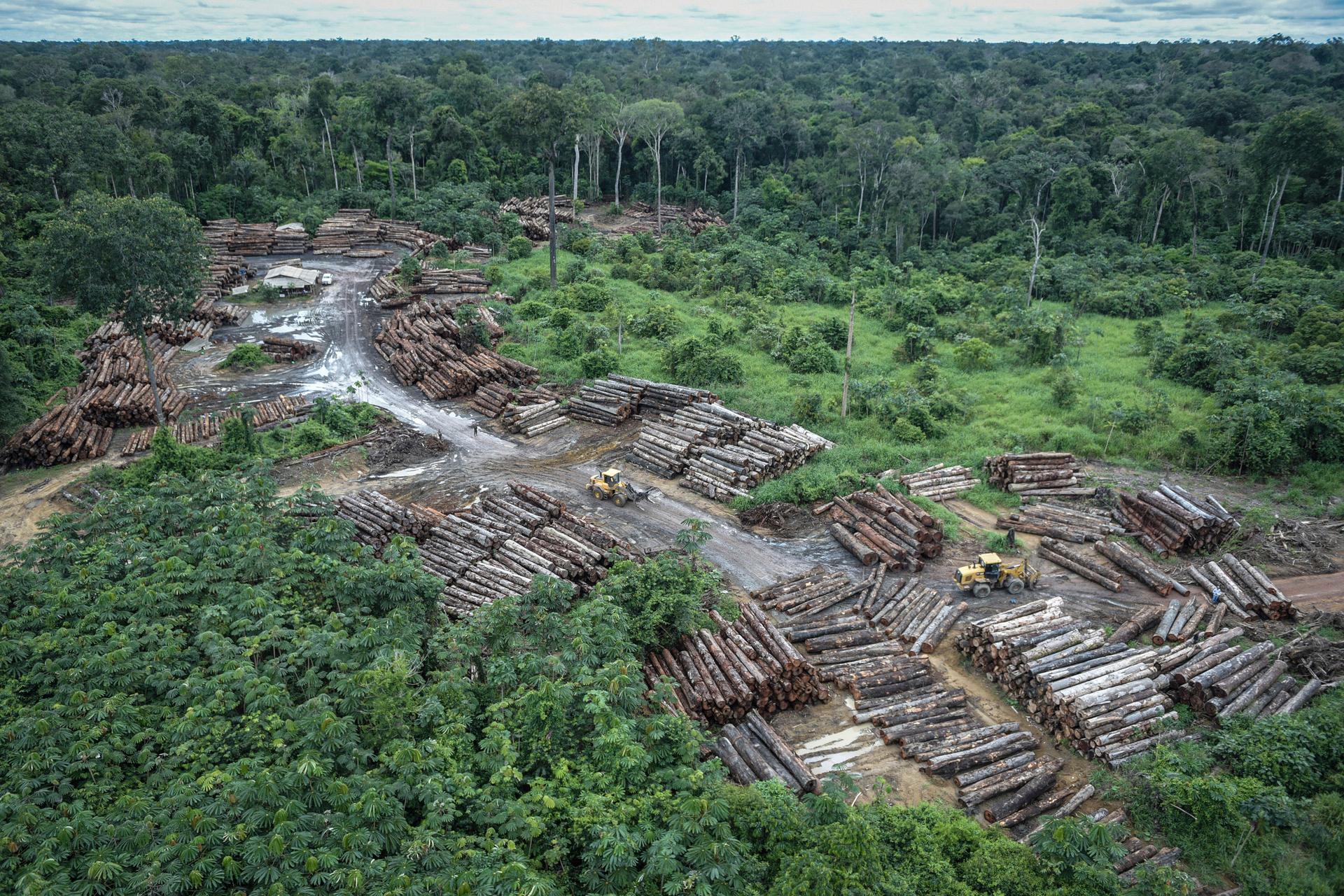The Amazon rainforest is likely adding to global warming, says a new study
The first broad study of all greenhouse gases in the Amazon rainforest reveals that, on balance, the damaged ecosystem is now a net contributor to climate change.
This surprising news comes from research analyzing a wide range of emissions — not just carbon dioxide — from the vast tropical forest system.
The Amazon is the most biologically diverse ecosystem on the planet and its trees absorb some 2 billion tons of carbon dioxide every year. But the increased release of methane and other powerful greenhouse gases like nitrous oxide appear to be helping to tip the Amazon toward adding to climate disruption.
Some of the problems in the Amazon stem from cutting and burning the forest, as well as from dams and cattle ranching that promote the formation of methane. Even more ominously, however, the global rise in temperatures now seems to be speeding up water cycles in the rainforest, changing its biochemistry and causing the system to swing between extremes of flood and drought.
Related: Rainforests are ‘worth more alive than dead,’ according to science — and economics
The scientists looked at many aspects of the Amazon ecosystem, explains Kristofer Covey, the study’s lead author: CO2 coming in and going out; soot from fires; changes in sunlight absorption and reflection due to clear-cutting; and methane emissions from wet soils and trees, among other things.
“What we saw was that when you start to add all of this up and look at the scale of the whole Amazon Basin, the net effect of that right now appears to us that it’s most likely that the Amazon is actually warming climate.”
“What we saw was that when you start to add all of this up and look at the scale of the whole Amazon Basin, the net effect of that right now appears to us that it’s most likely that the Amazon is actually warming climate,” Covey says.
CO2 is typically the headline greenhouse gas when talking about the Amazon, but methane is also an issue, Covey says. Methane is a greenhouse gas that comes out of all natural systems. Colleague Sunitha Pangala found a large amount of methane coming directly out of tree bark in the wet, flooded Amazon.
Related: Brazil’s Bolsonaro wants to mine on Indigenous lands — illegally
“What’s happening is it’s being produced in the soil, just as it would [be] in any wetland,” Covey explains. “Normally, the water sort of traps that in, but these trees stick their roots down into the soil and they’re drawing that methane out of the wet soil; they’re acting like straws and bringing it up into the atmosphere.”
That turns out to be a lot of methane: about 3.5% of all methane the Earth puts into the atmosphere.
Soils and trees also emit another gas, nitrous oxide (N2O), mainly as a result of land clearance, but it’s also present in the rainforest system before land is cleared, Covey says. Biological volatile organic compounds are also a piece of the puzzle. They don’t have much direct impact on climate, but they change the way other gases, like methane, break down in the atmosphere.
“So, all of these impacts are interacting with each other in real time,” Covey says. “We’ve known that this can happen in these systems, but starting to tie it all together onto one balance sheet can be incredibly difficult.”
All terrestrial ecosystems are constantly emitting and taking up greenhouse gases, Covey notes. In fact, a paper published in Nature in 2016 showed that, on net, the world’s forests emit more greenhouse gases than they take up.
“But this is sort of the natural ecosystem processes,” he says. “And that total isn’t what matters so much as how we are affecting that total, and the change that results from what we do on a piece of land.”
“We have, over the past half-century, dramatically reduced the carbon sink of the Amazon, and…that change is what’s really so frightening.”
And one of the study’s key findings is that the vast majority of what we do in the Amazon — deforestation, mining, conversion to agriculture — increases net global warming.
“And that’s not a good picture,” Covey says. “What we see there is that we have, over the past half-century, dramatically reduced the carbon sink of the Amazon, and…that change is what’s really so frightening.”
Related: How Indigenous land rights could help save the Brazilian Amazon from deforestation
Many scientists fear the Amazon is rapidly approaching a point at which the ecosystem itself is at the edge of potential collapse, Covey says. The trees that draw moisture from the ground seed the rainfall that makes the Amazon a rainforest, so every cut tree equals a little less moisture in the atmosphere.
“There’s a conceptual ‘last tree’ where this isn’t a rainforest anymore. Climate [change] exacerbates that process and puts us closer to that tipping point.”
“There’s a conceptual ‘last tree’ where this isn’t a rainforest anymore,” he explains. “Climate [change] exacerbates that process and puts us closer to that tipping point.”
Degradation has reduced the Amazon’s power as a carbon sink to a point at which “we can start having conversations about whether there is a general carbon sink there anymore,” he says. Add to that the release into the atmosphere of black carbon from all the fires, which adds to global warming, and the picture worsens further.
So, the Amazon is both at the center of a global feedback loop of warming, as well as a symptom of it, Covey says.
“It’s an interesting story about the interconnectivity of our entire planet — warming from the Amazon is then driving warming in the Arctic. And along with a bunch of other places, we’re starting to have this conversation around tipping points. And all of these tipping points are interconnected.”
This article is based on an interview that aired on Living on Earth from PRX.
